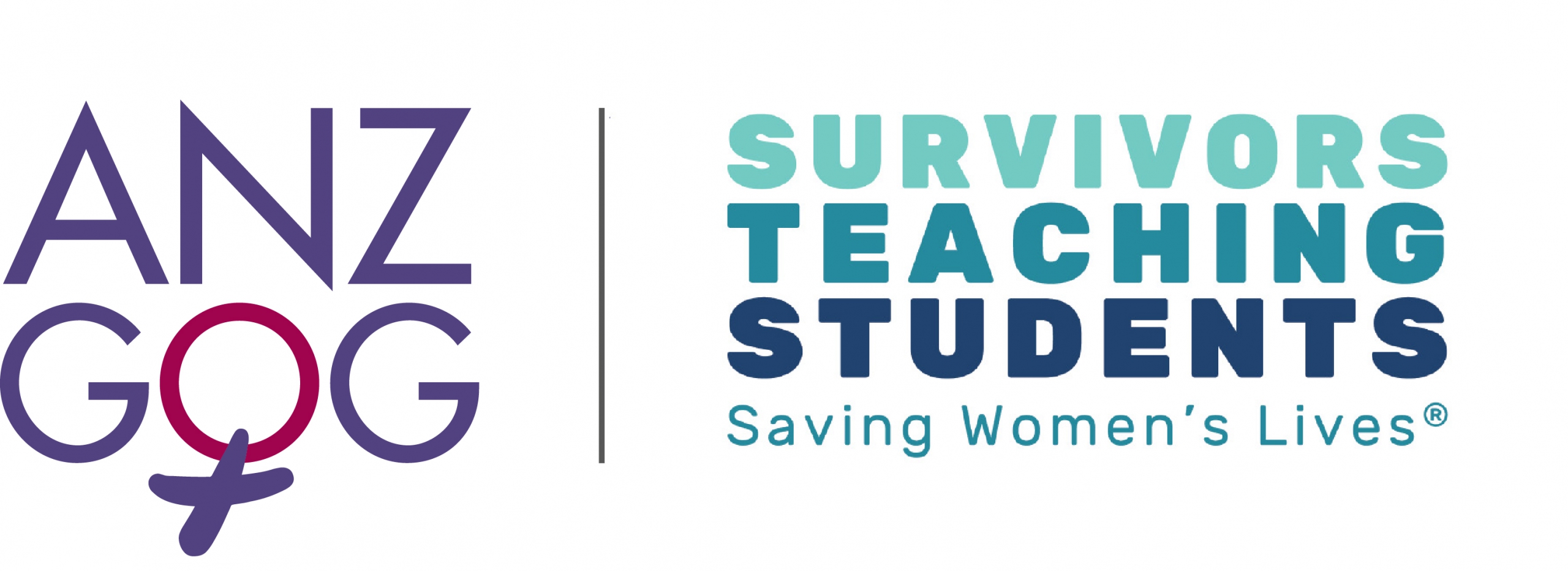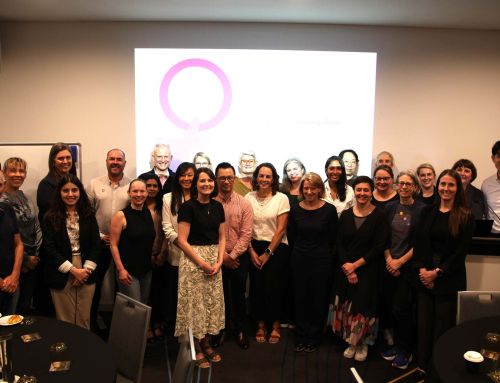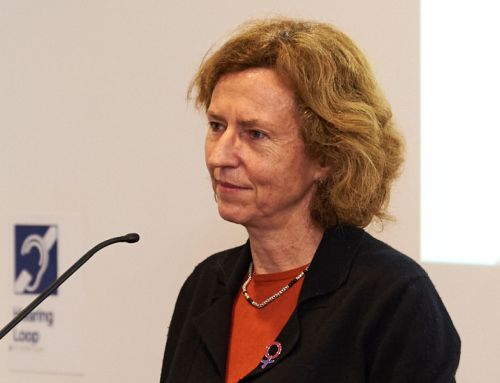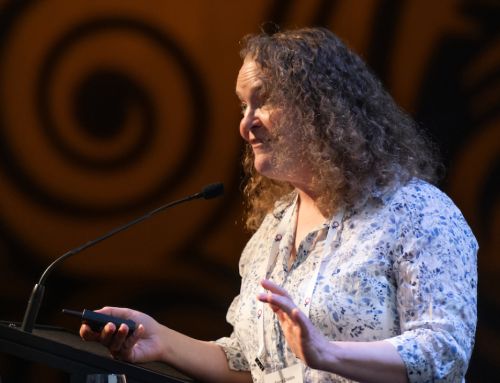During National Carers Week, ANZGOG recognises and thanks the caregivers who bravely share their very personal stories with students across Australia and New Zealand as part of the Survivors Teaching Students® (STS) program.
Survivors Teaching Students (STS) gives caregivers a platform to engage with the next generation of health professionals to help them understand the significant impact of a gynaecological cancer diagnosis on family members and the critical importance of good health communication, support, and compassionate care.
STS spoke with volunteers, Mark McCafferty (WA) and Harry Reyden (NSW), about their experiences as caregivers for their spouses who are living with ovarian cancer.
Mark McCafferty
 Mark McCafferty has been a caregiver for his wife Clare since she was diagnosed with ovarian cancer in 2016 and has been sharing his story as part of the STS program since 2019.
Mark McCafferty has been a caregiver for his wife Clare since she was diagnosed with ovarian cancer in 2016 and has been sharing his story as part of the STS program since 2019.
“My wife had a very difficult path to her diagnosis of ovarian cancer.
Ensuring that the medical and nursing students are aware of the symptoms of ovarian cancer is the reason I am involved in STS. The earlier ovarian cancer is diagnosed, the greater a woman’s chances of survival.”
Mark explained that it’s also vital for the students to understand the impact of a loved one’s diagnosis, treatment and care on the family.
“Sometimes the caregivers are forgotten, but it’s not only the patient that needs ongoing support, caregivers do too.”
“I think a lot of people assume the caregivers’ role is just cooking and cleaning, but there is a lot more involved than that. You have the emotional side of being a caregiver. Most people don’t see the effect it has on your mental health. It has changed me as a person and now I see a clinical psychologist once a month.”
“The aspect of being a caregiver that most people don’t see is when my wife spends hours, days and sometimes weeks in bed sick. That’s probably one of the hardest parts, when your loved one is sick, and you can’t help them.”
Harry Reyden
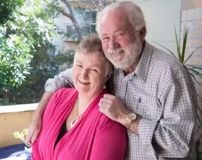 Harry has been a caregiver for his wife Robin since her diagnosis of ovarian cancer in 2015, and a volunteer with the Survivors Teaching Students program for four years.
Harry has been a caregiver for his wife Robin since her diagnosis of ovarian cancer in 2015, and a volunteer with the Survivors Teaching Students program for four years.
“I never think of being a caregiver as a burden, but rather as a labour of love. For me, it is a complete privilege.”
Harry said it is important for students to hear the stories of caregivers through the STS program because of the critical role caregivers play as the first and main support for their future patients.
“If you’ve never been a caregiver, I imagine it would be difficult to understand what it’s like.
We need empathy and support. Being a caregiver can be physically exhausting and mentally draining, however, friends and family come to our assistance by providing meals and household chores and driving us to appointments over the difficult times.”
Harry explained that the most important things caregivers need are ongoing support, information and to be able to speak to other people about their experience.
“Caregivers need information so they can make decisions, they need to be in touch with all the community services available and not try to do everything by themselves.
“They need some time to themselves to recoup. They need someone to talk to and maybe try to continue with a hobby. Trying to do some ‘normal’ things is useful, especially when life is not normal at all.”
What do STS students have to say?
Feedback from students attending STS presentations throughout 2021 shows how much they value hearing the stories of caregivers.
“I’m so much more aware of the risks, signs, and symptoms of ovarian cancer, but also the immense impact it can have from a psychosocial perspective for not just survivors but also carers.
University of Melbourne – Master of Nursing Science student
“I am much more aware of the concerns that a patient may present with and the need for a comprehensive network of resources such as support groups, both for the patient and their carers/family.”
University of New England – Second-year medical student
“I now have more understanding of how cancer affects the patient, carers, and their family. It’s more than a health condition affecting them physically. It also has huge impact on them emotionally.”
Notre Dame University – Nursing Student
Want to know more?
If you have a loved one affected by ovarian or another gynaecological cancer and would like to share your story with health professional students across Australia as part of the Survivors Teaching Students program, please contact bree.stevens@anzgog.org.au or visit www.anzgog.org.au/sts.

